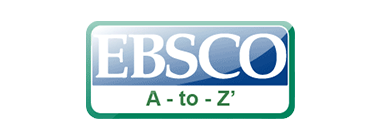Аннотация
В мире около 36 миллионов детей школьного возраста растут в семьях международных мигрантов, и это число продолжает расти. Образование этих детей – важный долгосрочный стратегический приоритет и инвестиция в будущее всего мира. В статье рассматриваются проблемы образования детей из семей мигрантов в контексте необходимости достижения Целей устойчивого развития, установленных международным сообществом в Повестке дня в области устойчивого развития до 2030 года. Анализируется опыт разных стран в сфере организации доступа детей из семей мигрантов к дошкольному, начальному и среднему образованию, подходов к их обучению и созданию благоприятной интеграционной среды, а также подготовки учителей. Особое внимание уделяется вопросам обеспечения стабильных образовательных результатов, языковой и социокультурной адаптации таких учеников.
Ключевые слова
Литература
Глобальная программа действий по образованию в интересах устойчивого развития. URL: http://www.geogr.msu.ru/science/projects/our/docs/index.php.
Ломакина И.С. Проблемы мультикультурализма в сфере образования ЕС // Педагогика. – 2015. – №2.
Преобразование нашего мира: Повестка дня в области устойчивого развития на период до 2030 года. [Электронный ресурс]. URL: https://sustainabledevelopment.un.org/post2015. [Lomakina I.S. Problemi mul'tikul'turalizma v sfere obrazovaniya ES // Pedagogika. – 2015. – №2.
Barlett, L., Rodriguez, D. and Oliviera, G. (2015). Migration and education: socio-cultural perspectives. Retrieved from: http://www.scielo.br/pdf/ep/v41nspe/en_1517-9702-ep-41-spe-1153.pdf
Burgess, S. (2014). Understanding the success of London’s schools. Centre for Market and Public Organization Working Paper, Series No. 14/333. Retrieved from: http://www.bristol.ac.uk/media-library/sites/cmpo/miIntegrated/documents/wp333.pdf
Child Protection Working Group with The Education Cluster and ILO (2015). NO to child labour YES to safe and quality education in emergencies. Retrieved from: https://resourcecentre.savethechildren.net/node/9156/pdf/cl_and_education_in_emergencies_final_web.pdf
Dryden-Peterson, S. and Adelman, E. (2016). “Ins. (2014). UNide Syrian refugee schools: making room for refugees in second shifts”. Brookings blog, 17 February. Retrieved from: https://www.brookings.edu/blog/education-plus-development/2016/02/17/inside-syrian-refugee-schools-making-room-for-refugees-in-second-shifts/
Education Commission (2016). The learning generation: investing in education for a changing world. Retrieved from: http://report.educationcommission.org/wp-conten/uploads/2016/09/Learning_Generation_Full_Report.pdf
Fix, M. and McHugh, M. (2009). Education, diversity, and the second generation: a discussion guide. Migration Policy Institute. Retrieved from: http://www.migrationpolicy.org/research/education-diversity-and-second-generation-discussion-guide
Hickmann, M., Crowley, H. and Mai, N. (2008). Immigration and social cohesion in the UK. Joseph Rowntree Foundation. Retrieved from: https://www.jrf.org.uk/sites/default/files/jrf/migrated/files/2230-deprivation-cohesion-immigration.pdf
International Migration Report 2017: Highlights (ST/ESA/SER.A/404). Retrieved from: http://www.un.org/en/development/desa/population/migration/publications/migrationreport/docs/MigrationReport2017_Highlights,pdf (date of addressing: 26.06.2018).
Jacobs, D. (2013). The educational integration of migrants. What is the role of sending society actors and is there a transnational educational field? INTERACT Research Report 2013/03. Retrieved from: http://www.interact-project.eu/docs/publications/Research%20Report/INTERACT-RR-2013-03.pdf
Moskal, M. (2010). Polish migrant children’s experiences of schooling and home-school relations in Scotland. Retrieved from: http://www.ces.ed.ac.uk/old_site/PDF%20Files/Brief054.pdf
OECD (2015). Helping immigrant students to succeed at school – and beyond. OECD Publishing, Paris. Retrieved from: https://www.oecd.org/education/Helping-immigrant-students-to-succeed-at-school-and-beyond.pdf
OECD (2016). Perspectives on global development 2017: international migration in a shifting world. OECD Publishing, Paris. Retrieved from: http://www.oecd.org/dev/perspectives-on-global-development-22224475.htm
OECD (2017). Interrelations between public policies, migration and development. OECD Publishing, Paris. Retrieved from: http://dx.doi.org/10.1787/9789264265615-en
Schnell, P. (2014). Education mobility of second-generation Turks. IMISCOE Research Series. Retrieved from: https://www.imiscoe.org/publications/library/2-imiscoe-research-series/6-educational-mobility-of-second-generation-turks
Taguma, M., Kim, M., Brink, S., Teltemann, J. (2010). Sweden. OECD Reviews of Migrant Education. Retrieved from: https://www.oecd.org/sweden/44862803.pdf
UNESCO (2016a). If you don’t understand, how can you learn? Global Education Monitoring Report Policy Paper 24. Retrieved from: http://allinschool.org/wp-content/uploads/2015/04/243713E.pdf
UNESCO (2017). Concept note for the 2019 Global Education Monitoring Report on education and migration. Retrieved from: https://en.unesco.org/gem-report/sites/gem-report/files/Concept%20Note%205%20April%20Final.pdf
UNESCO Institute of Statistics (2016). “Education: gross enrollment ratio by level of education”. Retrieved from: http://data.iuis.unesco.org/?queryid=142
Waslin, M. (2016). “Undocumented children face these challenges in accessing public education”. Retrieved from: http://immigrationimpact.com/2016/04/14/undocumented-children-public-education/
(c) 2018 Исторические Исследования

Это произведение доступно по лицензии Creative Commons «Attribution-NonCommercial-NoDerivatives» («Атрибуция — Некоммерческое использование — Без производных произведений») 4.0 Всемирная.
 | ISSN: 2410-4671 Свидетельство о регистрации СМИ: Эл № ФС77-55611 от 9 октября 2013 г. |










